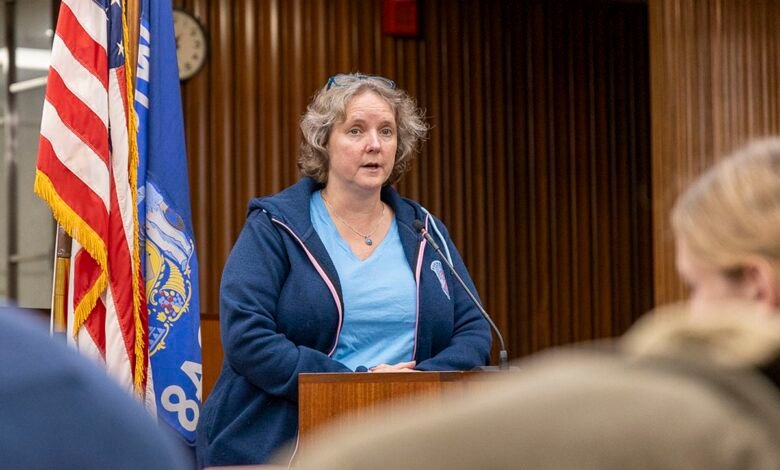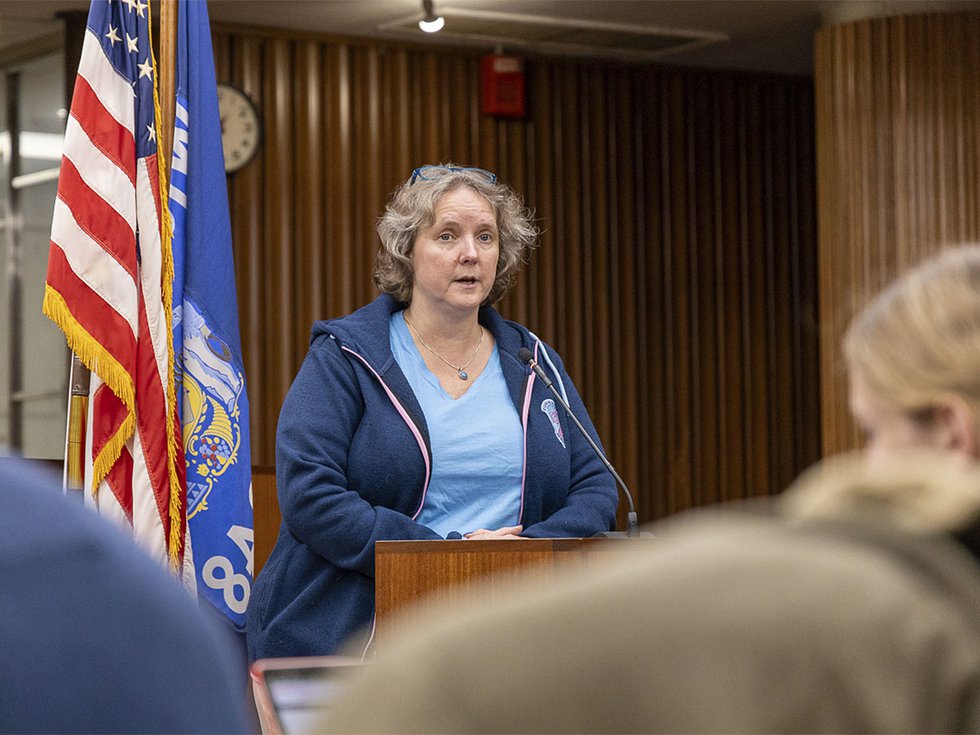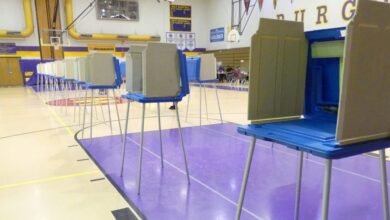Madison voters approve three spending referendums, despite earlier pushback – Isthmus


Despite a public campaign meant to derail a $22 million city referendum, the initiative passed with 57% of the vote Tuesday night, handing Madison Mayor Satya Rhodes-Conway a political victory amid an uncertain future for Madison’s finances.
Rhodes-Conway’s administration faced a barrage of criticism, including from former Madison Mayor Paul Soglin, for not doing enough lobbying at the state level to increase state funding for the city. At an Oct. 17 forum hosted by the nonpartisan Wisconsin Policy Forum, Rhodes-Conway said she took the criticism as a compliment.
“There’s been some buzz that if I just went and knocked on certain doors, I could get everything we wanted,” Rhodes-Conway said. “I honestly take that as a compliment, that folks think I’m so powerful and persuasive that I could get anything I wanted out of certain Republican leaders, and that previous mayors were clearly not able to do that. So it’s kind of a compliment that folks think that I could do it. But unfortunately, it’s not true.”
The mayor held a late-night news conference Tuesday at the City-County Building, where she thanked residents who voted “yes.” “I think it’s pretty clear that Madison values our city services and our city workers,” she said.
She also addressed those who opposed the referendum. “It’s not easy to vote to raise your own taxes, and we should never have been put in this position by the state Legislature.”
Tuesday night, the Madison Metropolitan School District also passed its capital and operating budget referendums, which total $607 million in funding. With their imminent budget needs temporarily addressed, city and school district officials say they will lobby the state hard for a more sustainable financial path going forward.
The school district’s capital referendum received 72% of the vote and its operating referendum 69.4%.
With the passage of the two school referendums and city referendum, owners of an average-value ($457,000) Madison home could see an approximately $1,580 increase to their property taxes by 2028. But the city’s $22 million referendum promises to stave off heavy budget cuts — had the referendum failed, the city planned to eliminate at least 18 full-time positions in 2025 as part of $5.6 million in cuts proposed across city departments.
The school district’s successful referendums will increase property taxes to provide up to $507 million in funding for school buildings and infrastructure, and $100 million in operational funding for staff salaries and benefits and to plug the district’s $46.3 million budget deficit. In a statement, schools Superintendent Joe Gothard said the results are an indication that “the community continues to be committed to investing in our students.”
“We have important work ahead of us and look forward to engaging with the community to make Madison a destination school district,” Gothard said.
Though the school district has successfully gone to referendum before, this was the first time the city of Madison proposed a property tax referendum. Ald. MGR Govindarajan says he’s “extremely thankful” for those who supported the referendum and encouraged residents to help advocate for the city at the state Legislature.
“That’s how we can make this a long-term win and get a sales tax and regional transit authority and things like that,” says Govindarajan, who works at the Capitol as a legislative aide. He expects the city to have a more “more structured lobbying approach going forward.” Govindarajan notes that his advocacy as a city alder is separate from his work as a Capitol aide.
Making progress with state lawmakers could be more difficult than city leaders had been hoping for. Democrats did not gain back control of the Assembly Tuesday night, though they did make notable gains in that chamber and in the Senate. Democratic Rep. Francesca Hong of Madison says she’s “ecstatic” to see residents “thinking collectively as a community” and expects Wisconsin’s redistricted legislative maps to increase bipartisan cooperation on public school funding, in particular.
“One of the number one things, the priorities of so many communities across our state, are public schools,” Hong says. “Rural, urban or suburban — people are talking about public education. And so I’m looking forward to working with Republican colleagues to move our state forward and make sure that we’re prioritizing our kids.”
Melinda Heinritz, president of the Madison Public Schools Foundation, the private nonprofit that raises money for the district, is partnering with Gothard to build legislative relations, an effort she says will begin in two weeks.
“We’re going to be looking for any ways that we can define success in the 2025-27 budget cycle,” Heinritz says. For one thing, she’d like to see the public get more involved in conversations with the Legislature.
“The average person on the street has no understanding about a 30-plus year disinvestment [by the state] in public schools,” she says.
City and school district leaders say state-level restrictions on revenue-raising methods forced their hand. Rhodes-Conway plans to keep up the pressure at the state level, an effort she says would benefit municipalities statewide, even with the plugged budget gap. Four Dane County municipalities held property tax referendums on Tuesday — only Fitchburg’s failed. Monona’s passed with 50.3% of the vote and Maple Bluff, with 55.3%. Twelve municipalities went to referendum statewide on Tuesday, according to The Capital Times.
Wisconsin public school districts, too, are increasingly going to funding referendums. Throughout 2024, nearly half of Wisconsin’s school districts (192 of its 421 districts) have gone to property tax referendums; 139 referendums were on the ballot Tuesday, according to data from the state Department of Public Instruction.
At the Wisconsin Policy Forum’s Oct. 17 forum, Gothard and Rhodes-Conway outlined some changes they would like to see at the state level. Gothard said he’d like to see a minimum 3% increase in inflationary adjustments for revenue limits, fully funded special education reimbursements, and the elimination of “unfunded mandates.”
Rhodes-Conway identified inflationary increases in city levy limits, increased shared revenue payments, a regional transit authority, sales tax authority, and fully-funded municipal service payments. On shared revenue, she said she has the sense that there’s “some appetite” to revisit the program’s payments among a bipartisan coalition of legislators who believe “we didn’t solve the problem the first time around.”
She said the city will continue to lobby for these priorities; if they’re not included in the next budget cycle, she added, “we’d be looking at four years down the road to make the changes that we need.”


